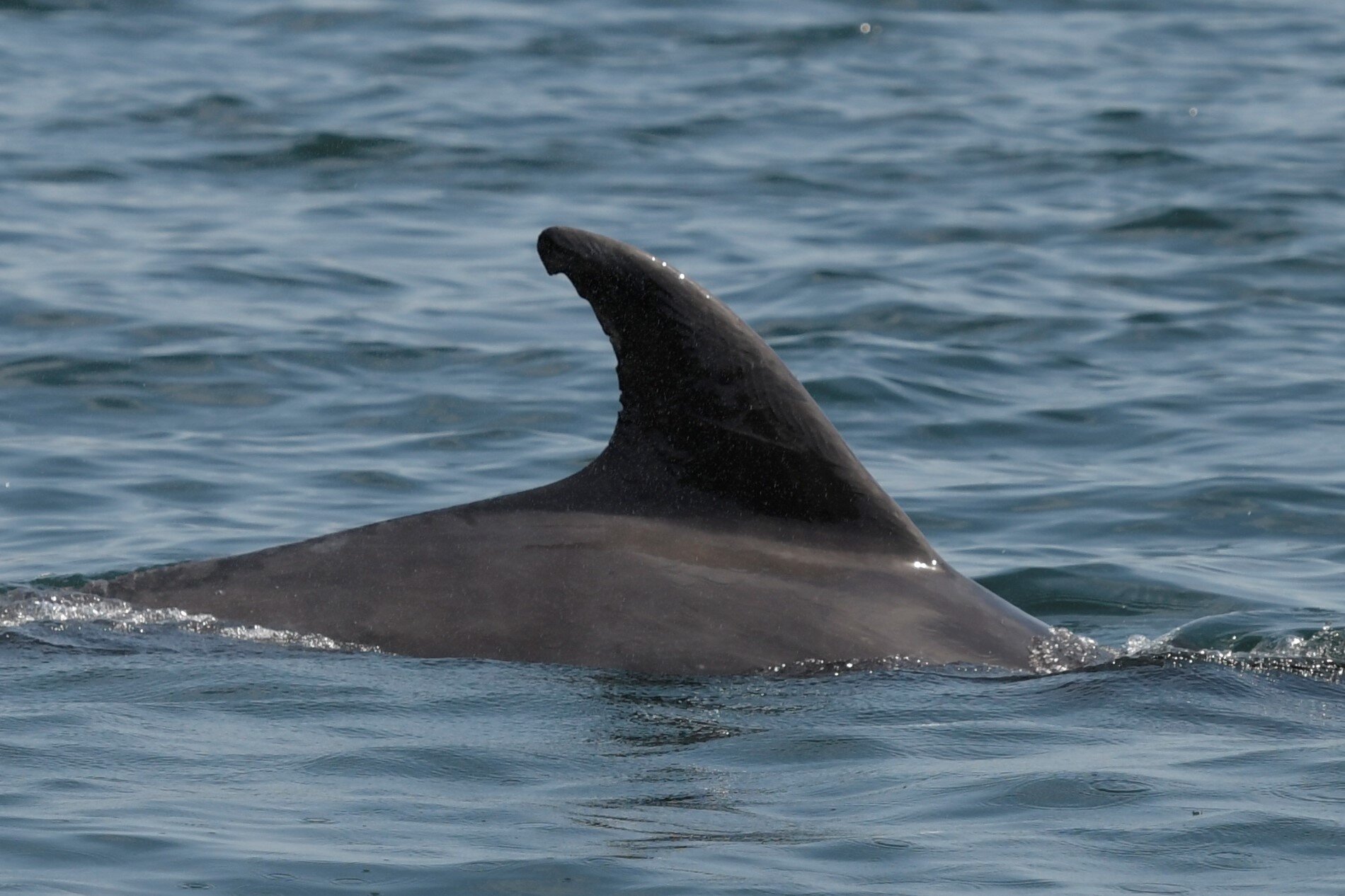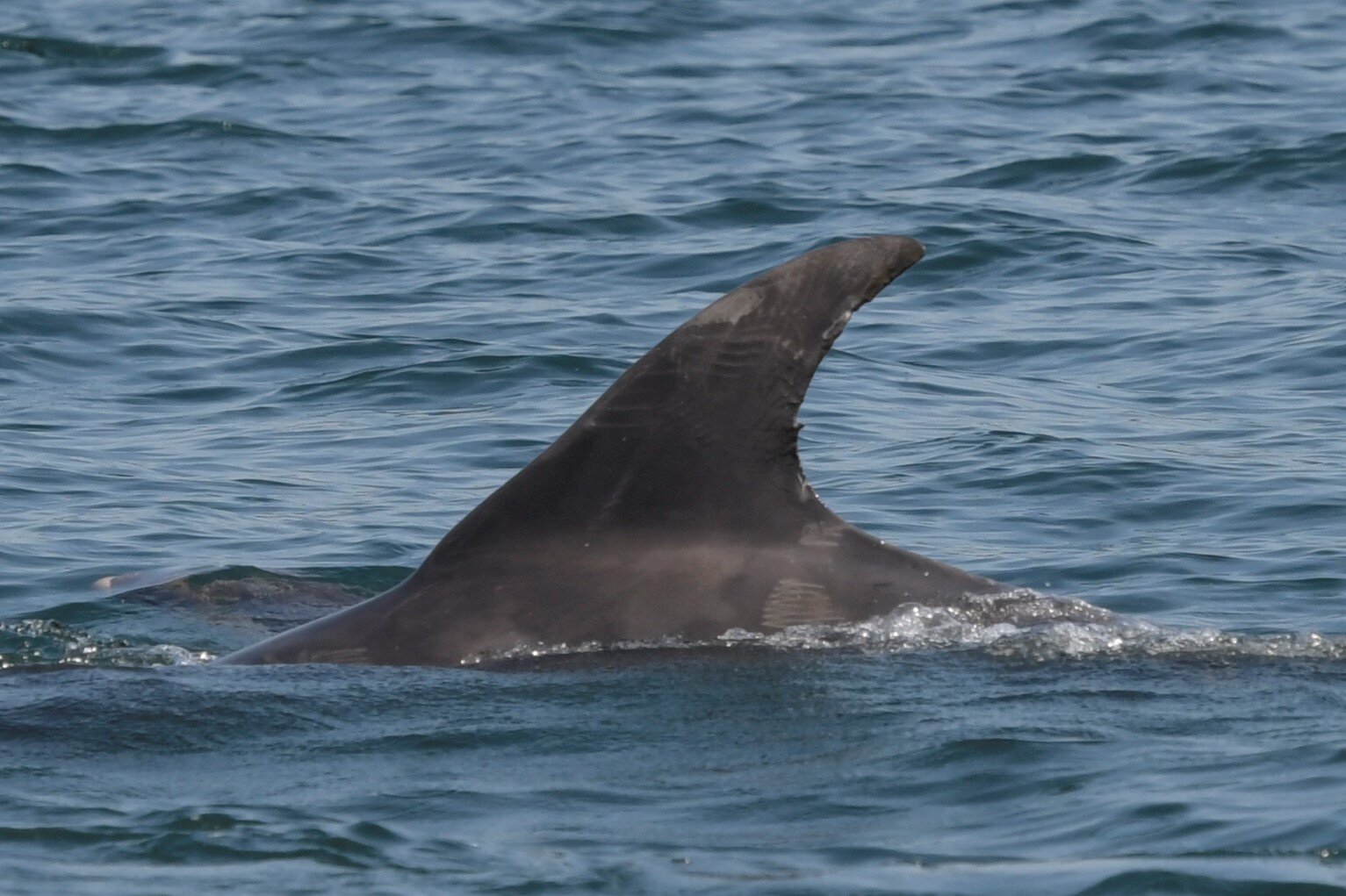Bottlenose dolphins make a surprise visit to Tobermory harbour!
It was a magic start to the month as bottlenose dolphins made a surprise visit to Tobermory bay! Word quickly spread through the community, and members of the HWDT team rushed down from our respective home offices to get a closer look. Our Marine Biodiversity Officer, Becky, even managed to get out on the water to take some photographs of the group.
These photos are not only a great memento of the encounter, but they are important for our scientific research. Photographs of each of the dolphin’s dorsal fins, which acquire unique nick and scars, allow us to recognise individual animals. It’s almost like a dolphin’s fingerprint! After getting back to shore we were able to compare the photographs against our bottlenose dolphin catalogue, and immediately recognised three individuals, who are regular visitors to Tobermory.
“After what has been a difficult few months for everyone, this was a real boost for the community. It was amazing to see the dolphins interacting with each other in what would usually be a busy time in the bay.”
Here at the Hebridean Whale and Dolphin Trust, we have been tracking individual bottlenose dolphins in the Hebrides since 2001. Since then, our data has revealed two separate pods of bottlenose dolphins who live within the Hebrides year round. The dolphins we saw in the bay are members of the Inner Hebrides community, a group of 30 to 40 animals that are often seen in the waters between the Kintyre peninsula and the Isle of Skye. The other population, the Sound of Barra community, are a smaller group of around 15 animals. They have a more restricted range, staying close to the Sound of Barra all year.
“I would usually be out on our research vessel Silurian at this time of the year so it was amazing to get back on the water again and see these incredible animals.
These bottlenose dolphins are most frequently seen close to the coastline around headlands and bays, so if you can see the sea from your home, daily exercise or are at sea for essential purposes keep an eye out for fins emerging for the water! ”
Much of what we know about this population comes from sightings submitted from members of the public and Whale Track has allowed us to continue to collect crucial sightings data during lockdown. As we enter Phase 1 of lifting restrictions in Scotland, people are permitted to travel short distances for outdoor leisure (5 miles), so we appeal to anyone who lives close to the Scottish west coast to get involved with conservation. Reporting is easy. Download the free (and super easy to use) Whale Track app or visit the website to join our community of citizen scientists helping monitor whales and dolphins in our waters!
A massive thank you to Tobermory Harbour for the tip off and help with getting photographs of the dolphins!





